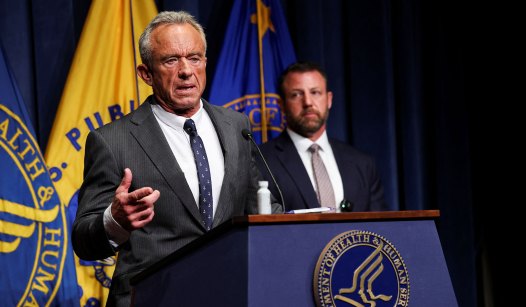Don't Leave mRNA Behind

The Shift in Federal Vaccine Funding
Health and Human Services Secretary Robert F. Kennedy Jr. recently announced that the Department of Health and Human Services (HHS) will terminate approximately $500 million in investments related to mRNA vaccine development. This decision marks a significant shift in federal priorities, especially given the role mRNA technology played in the rapid development of vaccines during the pandemic.
mRNA vaccines work by instructing the body to produce a protein found in a virus, which then triggers an immune response. While this method proved effective for the development of the Covid-19 vaccines, Kennedy has raised concerns about its effectiveness against certain viruses. He argued that mRNA vaccines may not perform well against respiratory infections, particularly those that mutate quickly. According to Kennedy, even a single mutation in the virus can render the vaccine ineffective, potentially prolonging a pandemic.
The Risks and Benefits of mRNA Technology
Despite these concerns, the use of mRNA technology has been widely recognized for its ability to rapidly develop vaccines without relying on live viruses. This approach reduces the risk of causing infections while allowing for quicker production timelines. However, it also requires regular updates to address genetic variations in viruses, as seen with the seasonal adjustments made to the Covid-19 vaccines.
Research into mRNA technology dates back over 60 years, when scientists discovered that substances blocking RNA synthesis could prevent protein production in bacteria. This led to the development of mRNA vaccines capable of producing specific proteins to train the immune system to fight infections. While these vaccines have shown high efficacy in preventing severe illness and death, they do not always prevent infection itself.
Studies conducted during the pandemic, such as a randomized control trial involving 43,000 volunteers, demonstrated that the Pfizer vaccine had 90% efficacy in preventing serious illness. Similarly, Moderna’s RSV vaccine showed an 83.7% efficacy rate across 37,000 participants. Despite these successes, some misinformation suggested otherwise, leading to public confusion about the vaccines’ true capabilities.
The Impact of Vaccines on Public Health
An October 2024 CDC analysis highlighted the significant impact of vaccines in reducing hospitalizations and deaths among immunized adults, even as new variants emerged. Without these vaccines, the pandemic would likely have had a more severe impact, and the global response might have been prolonged.
However, the decision to cut funding for mRNA research raises questions about the future of vaccine development. While HHS claims it is not abandoning the technology entirely, the move has sparked concerns about the potential loss of opportunities in tackling other major health threats.
Expanding the Scope of mRNA Research
Despite the current shift in focus, mRNA technology holds promise for addressing a range of diseases. Researchers are exploring its application in developing vaccines for malaria, HIV, dengue, yellow fever, Marburg, Ebola, rabies, and hepatitis C. These diseases continue to pose significant challenges, and the adaptability of mRNA technology could be crucial in creating targeted solutions.
One area of particular interest has been the influenza virus, known for its ability to mutate rapidly. The potential for an agile vaccination program targeting this virus remains a key goal for researchers. However, the recent changes in leadership and funding suggest that this research may now be left to private institutions and other countries.
Concerns About Leadership and Policy
Kennedy’s actions have drawn criticism, particularly given his long-standing opposition to vaccination programs. His decision to replace members of the Advisory Committee on Immunization Practices with individuals who share his skepticism has raised concerns about the direction of public health policy. Additionally, cuts to funding for studying vaccine hesitancy and halting U.S. cooperation with international organizations promoting immunization further complicate the picture.
While each individual decision might be considered understandable on its own, the overall trend suggests a deliberate effort to align policies with Kennedy’s personal views. This has led to questions about whether the decisions are based on scientific evidence or political ideology.
As the future of mRNA vaccine research hangs in the balance, the broader implications for public health remain uncertain. The debate over the role of this technology in combating infectious diseases will likely continue, with significant consequences for global health strategies.
Post a Comment for "Don't Leave mRNA Behind"
Post a Comment